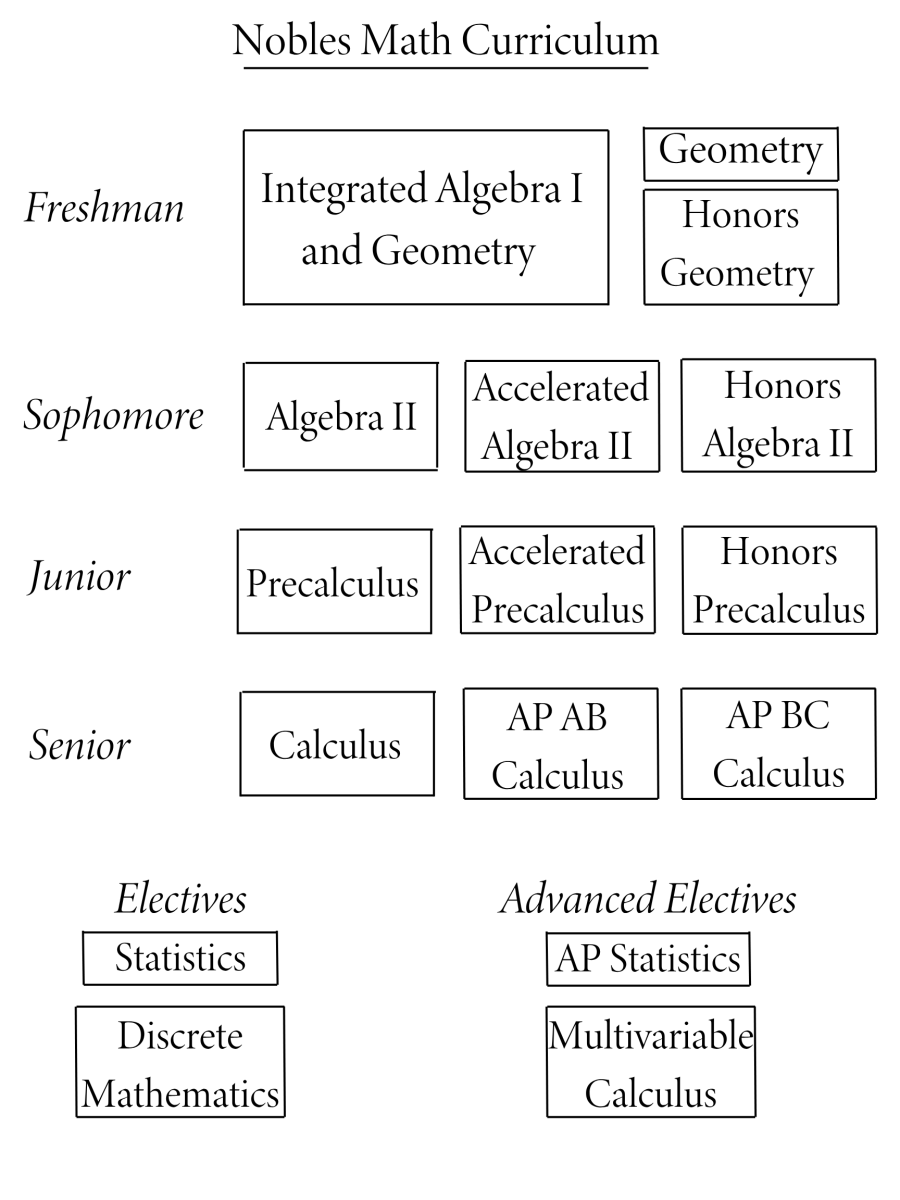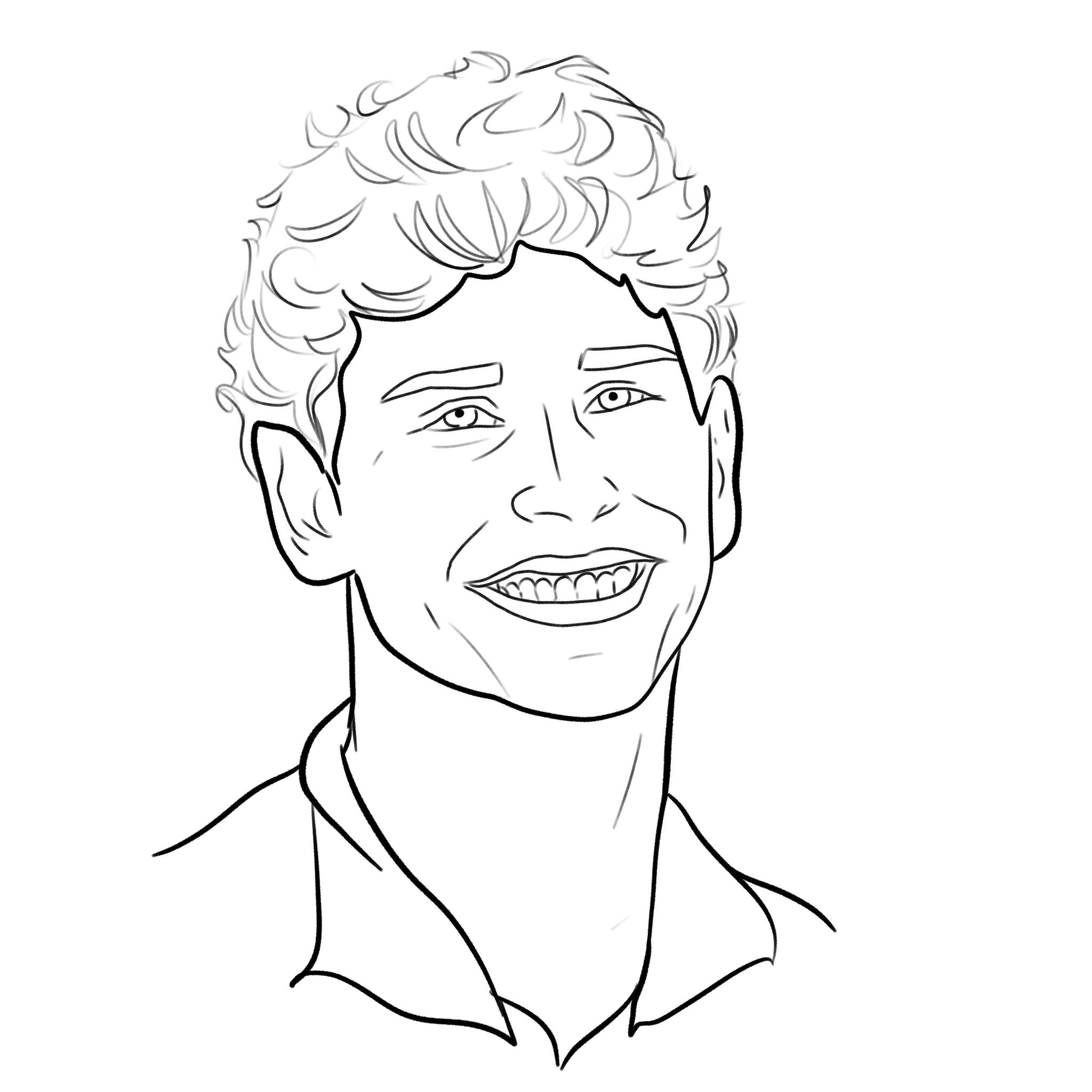
The placement process begins when students are accepted to Nobles and typically ends around course registration night. “When we see those prospective Class IV student’s transcripts, recommendations, scores, and coursework, we have to do a lot of digging to find out what course will serve that student best,” Math Department Chair Karen Gallagher said. She speaks to the many data points that the teachers in charge of placement must consider as they weigh both course transcripts and the material covered in the course. However, only courses from previous schools are acknowledged, with a lack of consideration for outside math programs. “[Outside math programs] might enhance what [students] are able to do here, but we could never use those standards as a way to compare students here,” Gallagher said.
Students have mixed feelings about this lack of consideration for outside programs. “I found my freshman math class to be relatively easy because I had already taken the same program [outside of school],” Vedant Kulkarni (Class II) said. This intentional lack of consideration for outside courses may cause students to become bored with their classes and even lose their love for math, which is exactly what teachers in charge of placement want to avoid. “We want to make sure that we are putting [students] on the trajectory that maintains their love and appreciation for math,” Gallagher said.
“We want to make sure that we are putting [students] on the trajectory that maintains their love and appreciation for math.”
For students who are allowed to skip classes, this decision often increases their curiosity and love for the subject. “I didn’t always expect to be necessarily placed up. So when I got that opportunity freshman year, I was really excited to pursue this new mathematical track in high school,” Ben Gelber (Class II) said. The general sentiment among students is that placement in a more advanced class is more likely to foster engagement and, ultimately, love of the subject.
However, the teachers in charge of placement would rather err on the side of caution. “The worst thing that can happen is a kid goes into a class that they’re in over their head. They’re just getting by, so they’re not learning the material,” former Math Department Chair and Director of Studies Sue Kemalian said. However, many students believe that entering a more challenging class that they have requested would lead them to be more motivated and engaged in the curriculum. Instead of “getting by,” they would actually be learning more.
After reviewing transcripts and other factors, teachers move to conversations with students and families to finalize placements. “I remember conversations when I was thinking about attending Nobles and asking, ‘Where can I place?’” Aydin Alsan (Class I) said. After applying to numerous other independent schools in the area, he selected Nobles because he felt it would best support his STEM journey. “We try to have the conversations in the spring so that they can hit the ground running in their proper class,” Kemalian said, echoing the importance of personalized discourse throughout the process.
Even still, some students feel as though these conversations are fairly generic and their outcomes are predetermined. “I think it’s frustrating that [the administration] has a concrete rule, instead of taking each case and determining whether it’s fit for that student to skip,” Kulkarni said. Sometimes, the conversations intended to build personalized learning tracks instead lead to frustrated students who feel their particular case was viewed too narrowly. “We want to lead with curiosity,” Gallager said. However, some students would rather the administration lead with flexibility.
“I think it’s frustrating that [the administration] has a concrete rule, instead of taking each case and determining whether it’s fit for that student to skip.”
In Class I or II, Nobles students typically take physics. Although many students have studied the course curriculum outside of Nobles, no first-year physics students can enter the AP course. “With our first-level courses, we’re delivering content, yes. But we’re also delivering experiential learning and the development of a skill set that we believe is important to students learning to function as scientists,” Science Department Chair Jen Craft said. This “experiential learning” is the lab and classroom-based learning experiences that would not necessarily show up on a course description. She believes that courses outside of Nobles, although they may share the same content on a list, do not provide the same journeys of discovery central to the Science Department’s mission.
However, some students feel differently. They believe that if they know the content of the first-level physics course, they can practice their lab skills in the AP. As all science courses should foster “journeys of discovery,” students argue, the administration should not restrict which levels of courses students take.
The disparity between student and administrative beliefs indicates that this is a problem worth addressing. Students have mixed feelings about Nobles’s STEM placement policy, as some believe that their placement has helped foster their love for the subject, while others resent not being able to skip a level of a particular subject. The inconsistency in students’ experiences suggests that the administration needs to find a way to develop a comprehensive policy that satisfies the entire student body.
